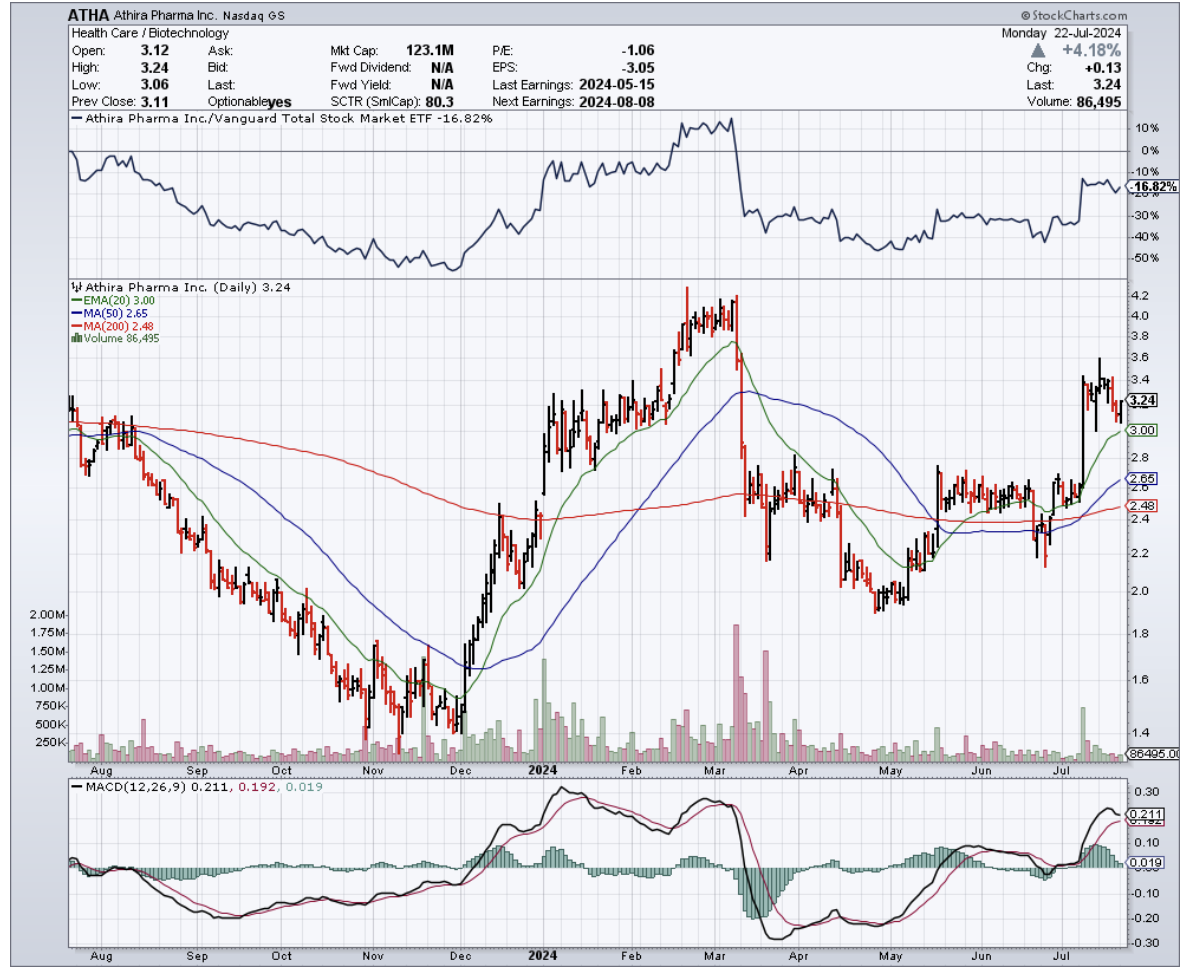Don't Sleep On This Biotech Sleeper
To date, 6.7 million Americans over 65 are already wrestling with Alzheimer's, a number set to double by 2050.
It's a demographic disaster, a slow-motion train wreck that Big Pharma's been slow to recognize.
Companies, including Biogen (BIIB) and Eli Lilly (LLY), working on this are still fiddling with amyloid plaques and tangled proteins, like a plumber trying to fix a leaky nuclear reactor with duct tape.
But one scrappy biotech outfit, Athira Pharma (ATHA), is taking a different tack. They're not chasing the same old tired targets.
Instead, they're looking at the brain's own repair mechanisms, trying to kickstart the engine instead of just patching up the exhaust. It's a high-risk, high-reward play, but isn't that what makes this game so damn exciting?
Athira targets the neurotrophic hepatocyte growth factor (HGF) and its sidekick, the MET receptor. Don't let the fancy names fool you - these little fellas are the unsung heroes of your noggin.
Think of HGF and MET as the brain's maintenance crew. They're not just sitting around twiddling their thumbs. They're constantly on the job, patching up neurons and keeping the lights on upstairs.
Athira's betting the farm that if they can juice up this dynamic duo, they might just be able to slow down the Alzheimer's wrecking ball, or heck, maybe even throw it in reverse.
It's a bold move, I'll give 'em that. While everyone else is trying to sweep up the mess Alzheimer's leaves behind, Athira's aiming to stop the party before it even starts.
If they're right, it could be like discovering fire all over again in the world of neuroscience.
Speaking of which, Athira's lead drug, fosgonimeton (try saying that three times fast), just hit a milestone that's got Wall Street perking up its ears. They've wrapped up dosing in their Phase 2/3 LIFT-AD trial for mild-to-moderate Alzheimer's.
We're talking about 315 patients who've been getting daily shots of this stuff (or a placebo) for 26 weeks. It's like a six-month-long neuroscience party, and we're all waiting to see who's left standing when the lights come on.
Interestingly, Athira's playing it smart with their ongoing Phase 2/3 LIFT-AD trial. They're using something called the Global Statistical Test (GST) as their primary endpoint. It's like they're giving themselves better odds at the casino.
This GST is designed to catch even the slightest whiff of a clinically meaningful treatment effect. It's like using a finely-tuned bloodhound instead of a myopic poodle to find your car keys.
And here's another thing that caught my attention: 85% of the folks from their trials signed up for the after-party - the open-label extension study. That's like people sticking around to help clean up after a rager.
When was the last time you saw that kind of enthusiasm for anything, let alone a clinical trial?
But Athira isn't content with just one target. They've also got fosgonimeton in the ring against Parkinson's with their SHAPE trial.
This Phase 2 slugfest has already shown some positive jabs on cognitive measures for patients with Parkinson's disease dementia and Dementia with Lewy bodies.
And because apparently two fights aren't enough, Athira's also thrown fosgonimeton into the ALS arena. This early-stage trial is like watching a fighter warming up in the gym - we don't know how it'll play out, but the potential is intriguing.
So, what’s next? Well, we’re now staring down the barrel of what could be the biggest shakeup in Alzheimer's research since... well, since we started researching Alzheimer's.
Athira's betting big on their HGF/MET approach, and if it pays off, we might be looking at the medical equivalent of striking oil in your backyard.
Mark your calendars for the end of Q3 2024. That's when we'll find out if fosgonimeton is the real McCoy or just another pie-in-the-sky biotech dream. And don't forget the fireworks show in Madrid this October - Athira's set to strut their stuff at the Alzheimer's conference, and you can bet your bottom dollar I'll be watching.

